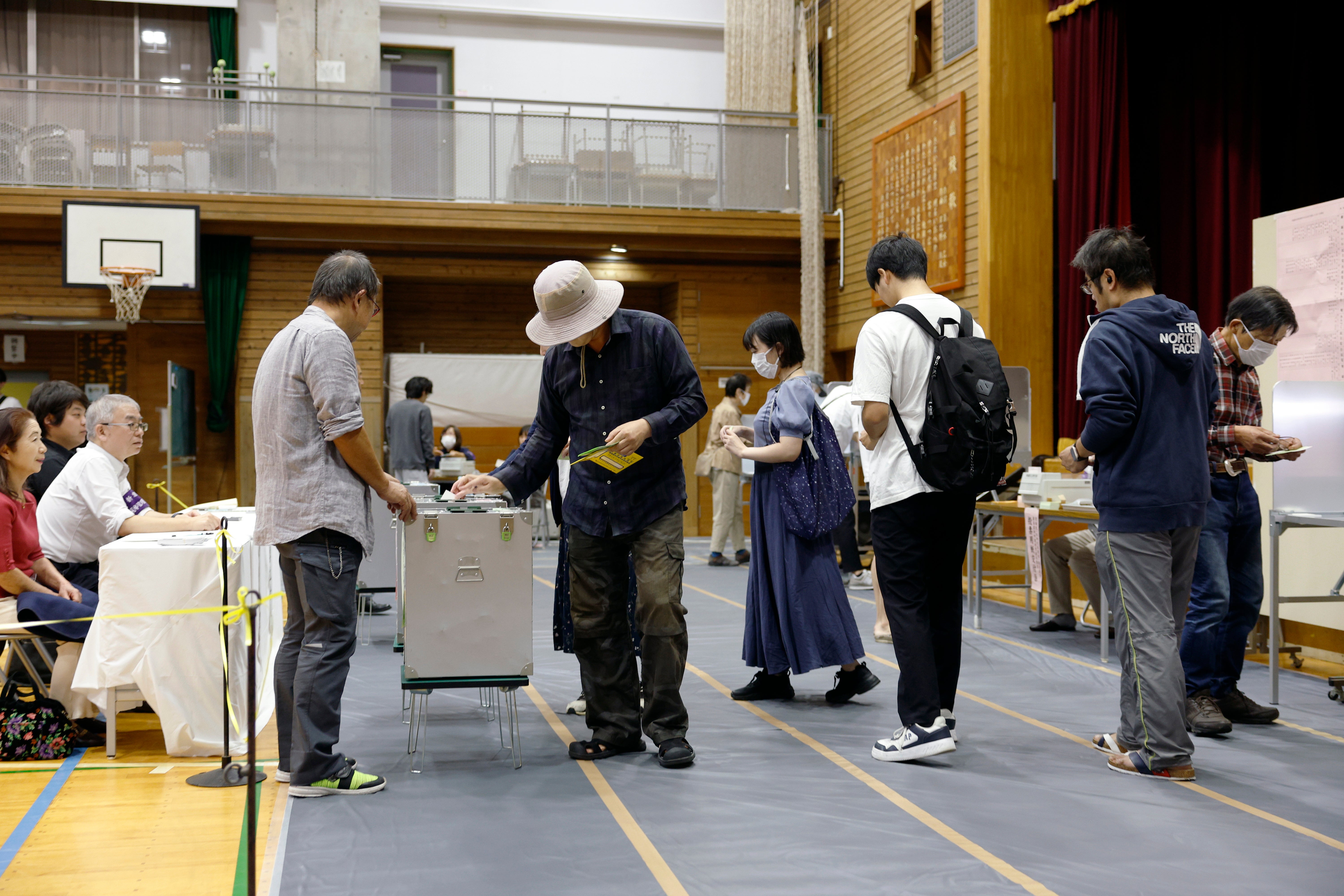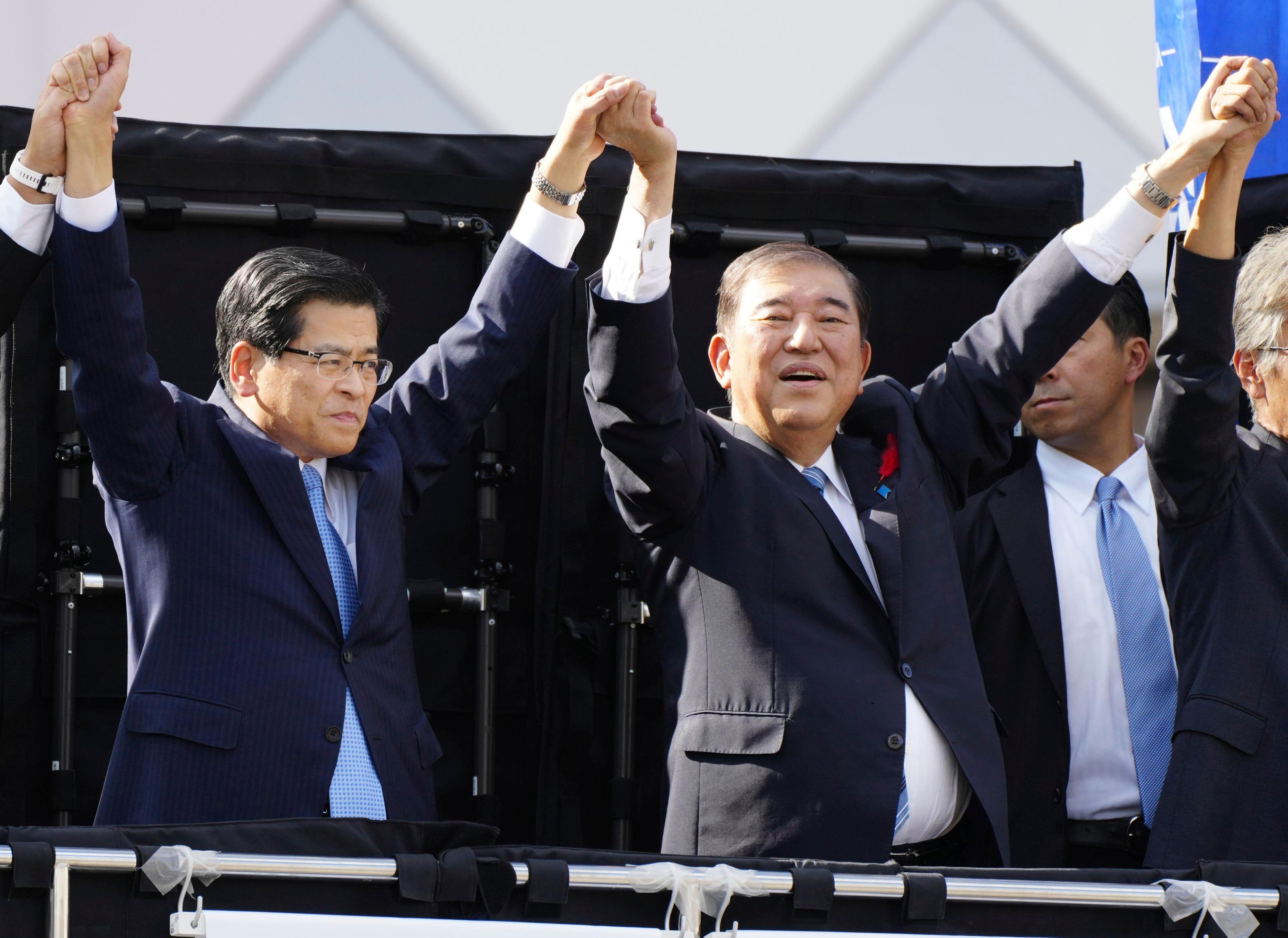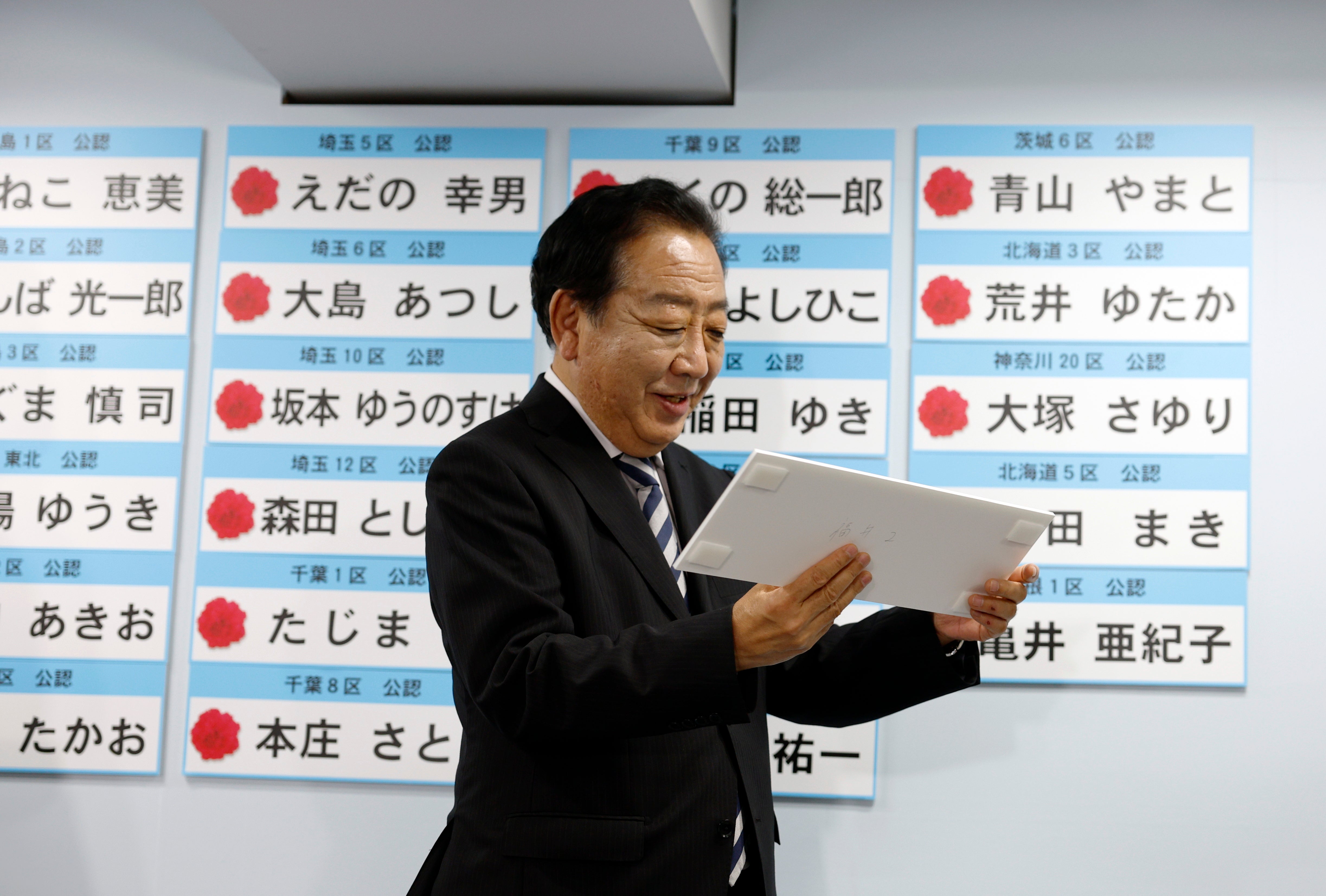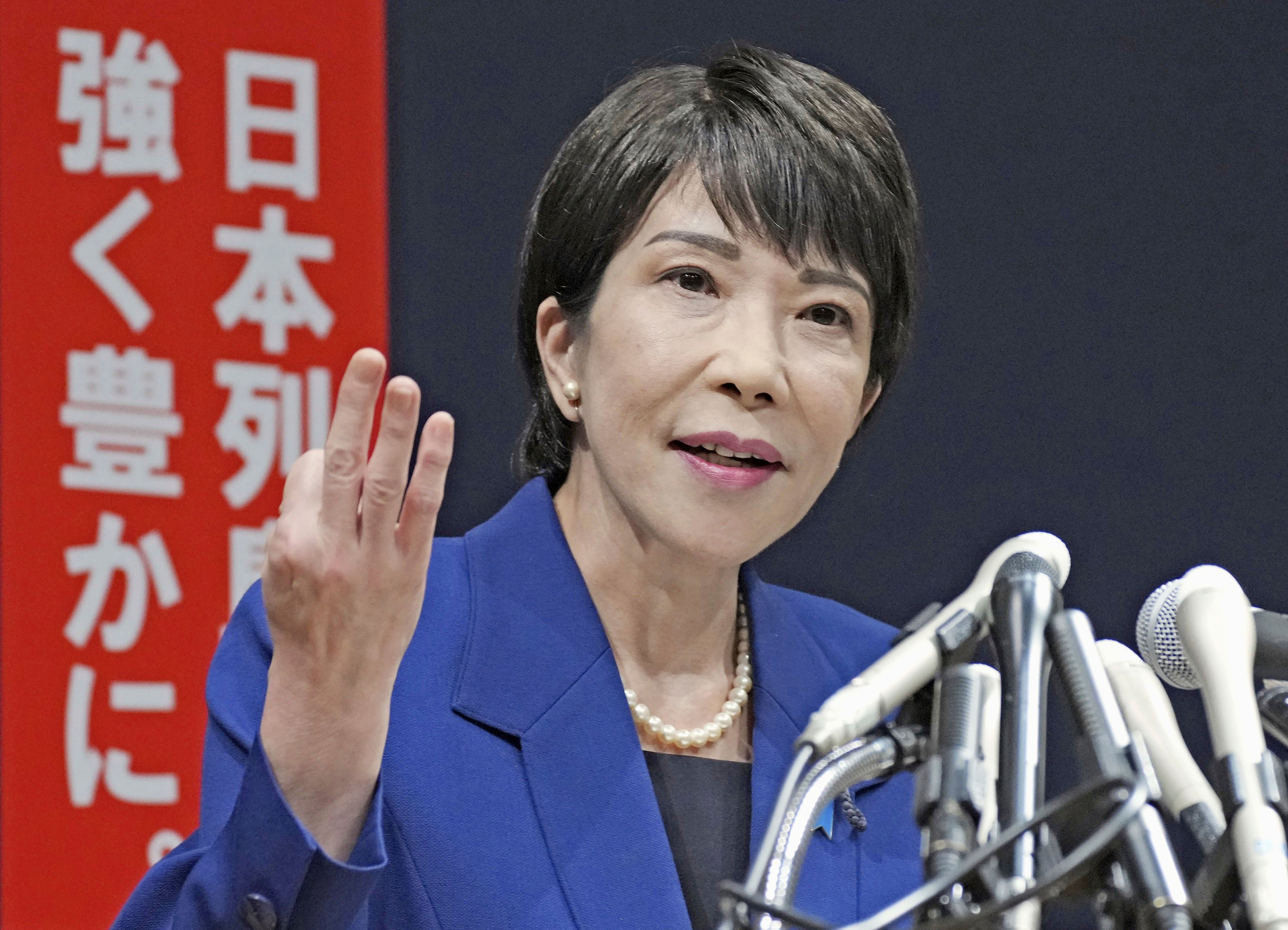
Japan’s ruling coalition has lost its majority in a punishing set of results from Sunday’s general election, throwing the country into the kind of political instability not seen for decades.
With the final constituency accounted for, prime minister Shigeru Ishiba’s Liberal Democratic Party (LDP) and its junior coalition partner Komeito had just 215 seats, down from 279 and well short of the 233 needed to form a government.
It is the worst result for the LDP – which has ruled Japan for 65 of the past 69 years – since 2009, when it briefly fell out of power.
A chastened-looking Mr Ishiba told TV Tokyo it was a “very tough” election for the party, which had its reputation badly damaged by a corruption scandal involving money siphoned off from party fund-raising events.
Of 46 candidates who admitted to financial reporting errors and either had the whip withdrawn or partially lost the party’s backing, only 18 were able to retain their seats. Analysts say those who won as independents may be brought back into the LDP fold now that they have been approved by the voters.

The result shows the “severe” level of public distrust in the LDP as a result of the slush fund scandal, Yu Uchiyama, professor of political science at the University of Tokyo, told The Independent.
“Unless Ishiba and the LDP seriously implement political reform, they might not be able to recover people’s support,” he said.
Some of the biggest names in the ruling coalition failed to win seats, including Komeito’s leader Keiichi Ishii. “We have no choice but to rebuild the party,” after Mr Ishii’s defeat, a party spokesperson told reporters.

The opposition party that gained the most from the collapse in LDP support was the Constitutional Democratic Party (CDP), which outperformed expectations to take 148 seats, up from 98 at the last election.
Opposition leader Yoshihiko Noda celebrated the results at a press conference, telling the media: “We accomplished our goal of preventing the ruling coalition from a majority, which was a major achievement.”
Yet while opposition parties collectively won enough seats to form a majority, a grand coalition between them is seen as unlikely given they span the full political spectrum and have drastically opposed views on key matters from fiscal and defence policy to the use of nuclear energy.

With its 191 seats the LDP remains the single largest party and could still cobble together a government by adding a third coalition partner.
Mr Ishiba declined to comment on the shape of power-sharing talks until the full results are formally declared, but he is most likely to turn first to either the centrist Democratic Party for the People or the conservative Japan Innovation Party. They took 28 and 38 seats respectively.
Both parties have previously ruled out a formal coalition with the LDP, however, meaning at best they are likely to only join a partial coalition where the government would have to approach them for their backing on legislation on a case-by-case basis.
Such a fragile government will inevitably leave Mr Ishiba vulnerable to a leadership challenge from within his own party. Waiting in the wings is Sanae Takaichi, the preferred choice from the ultra-conservative faction of the LDP who Mr Ishiba, a moderate, defeated in last month’s leadership election.

Mr Ishiba was seen as having decent approval ratings after that victory and called the snap election in order to try and capitalise on his honeymoon period. Yet his popularity tanked as he U-turned on a number of policies – including creating an Asian version of Nato, support for same-sex marriage and the right for married individuals to choose to keep different surnames – after entering office.
Sunday’s election was held amid an atmosphere of deep voter apathy in Japan, with little fanfare or excitement seen on the streets of Tokyo. Voters described being put off the LDP by the slush fund scandal yet reluctant to vote for the opposition given their lack of experience running the world’s fourth-largest economy.
This sentiment was borne out by the turnout figures, down almost two percentage points to 53.84 per cent as of the preliminary results at 9am on Monday morning. That’s the third-lowest turnout in Japan’s post-war history, and one of the worst among any developed nation.



.png?w=600)



